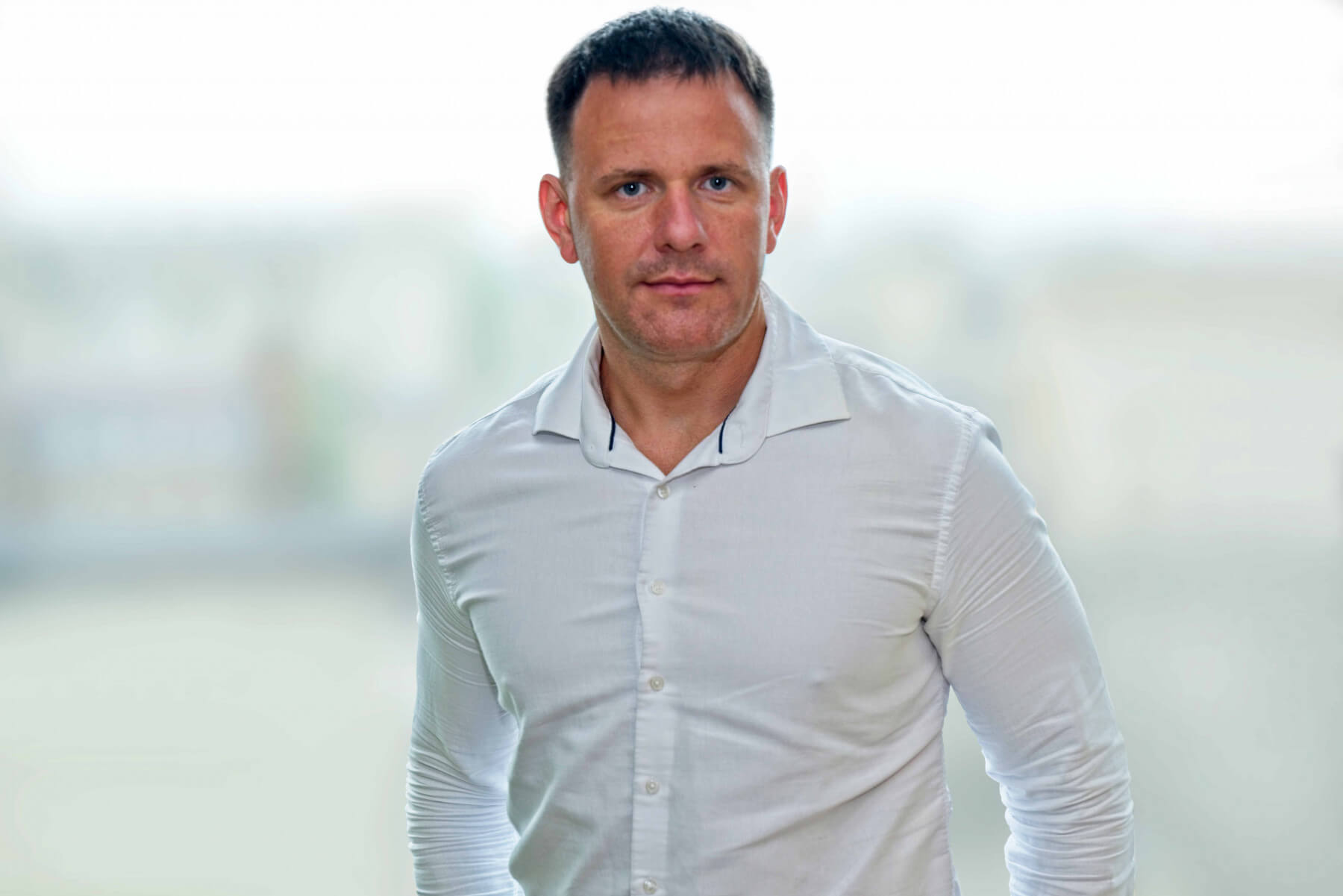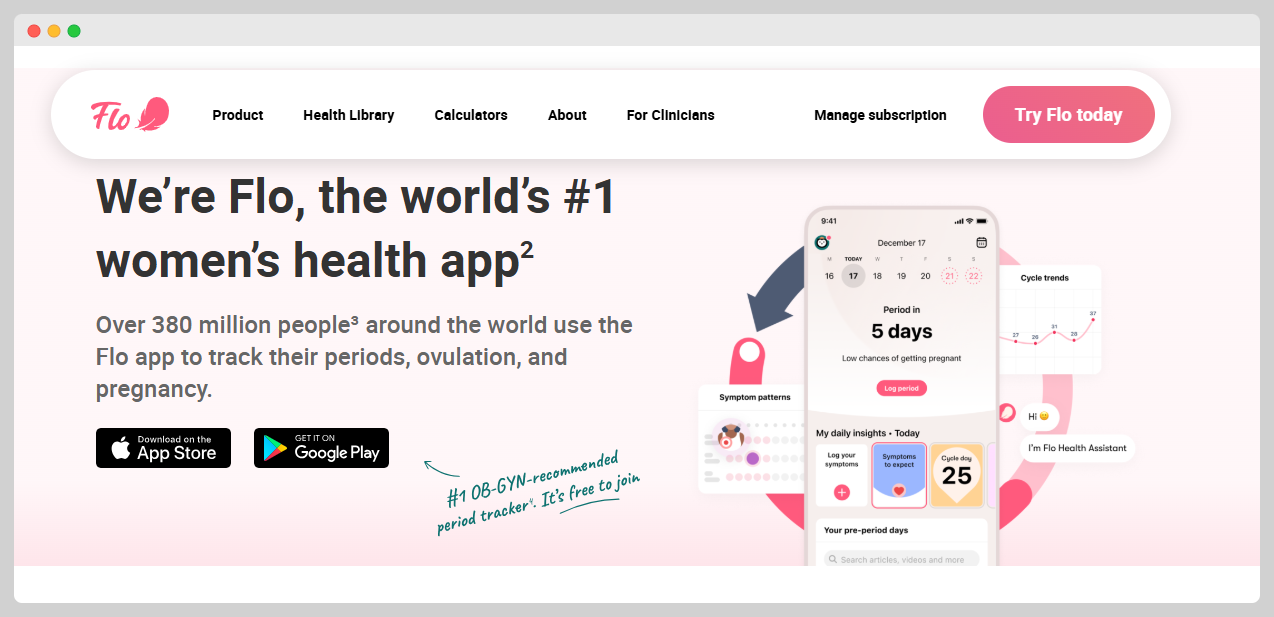How Two Brothers Built Women Health App to Unicorn Status
Who is Dmitry Gurski?
Flo.health was co-founded by Belarusian brothers Dmitry Gurski and Yuri Gurski. Dmitry has a background in pharmaceutical chemistry, gained an MBA from Kozminski University, and completed executive education at Stanford; he previously worked in book publishing and attempted multiple tech ventures before co-founding Flo.

What problem does Flo.health solve?
Flo.health helps women track their menstrual cycles and gain personalized insights, addressing the often-overlooked need for understanding and managing reproductive health effectively, thus becoming a trusted daily tool for 50 million users.

How did Dmitry come up with the idea for Flo.health?
Dmitry Gurski's journey to founding Flo Health began with a keen observation of a gap in the market for comprehensive women's health solutions. He and his brother recognized that existing apps primarily focused on basic period tracking, while more extensive support for female health was lacking. This insight was coupled with their prior experience in creating health and fitness apps, which provided them a foundational understanding of the market dynamics and user needs.
To validate their idea, they engaged in thorough market analysis, compiling extensive documentation that explored user demands and competitive landscapes. They were motivated by a desire to create something meaningful, focusing on building a product that went beyond mere utility to become a comprehensive resource for women. This led to the conceptualization of Flo as a "super-app," aiming to cover broader areas of female health through advanced technology like AI and machine learning.
Despite their initial successes, the path to creating Flo was not without challenges. Previous attempts to create successful period tracking apps taught the founders valuable lessons about the importance of simplicity in consumer products. They learned to refine their approach by listening closely to users and incorporating continual feedback and research, ensuring the app met real-world needs effectively. This commitment to understanding and addressing user concerns was central to their strategy for developing a successful and widely adopted product.
How did Dmitry build the initial version of Flo.health?
Flo Health was developed with a focus on integrating artificial intelligence (AI) and machine learning technologies to deliver personalized reproductive health tracking and insights. This technology stack allowed the founders to analyze user data efficiently and create predictive models that improved the app's period tracking and health insights. Building the first version of Flo took approximately one year, during which the team faced challenges related to achieving simplicity and accuracy in predictions, iterating software development to enhance user engagement. The experience of developing Flo was complex due to the necessity of balancing rich features with ease of use, ensuring a high retention rate, and creating a user-centric product that required continuous testing and refinement.
What were the initial startup costs for Flo.health?
- Funding: In September 2021, Flo Health announced a €42.2 million Series B funding round, bringing its total capital raised to approximately €54.8 million.
What was the growth strategy for Flo.health and how did they scale?
Word of Mouth
Flo Health has achieved significant growth through word-of-mouth marketing. Users find the app extremely valuable, which leads them to share it with friends and family, primarily through messaging apps like WhatsApp. This organic growth strategy leverages the app’s strength in providing real value, leading to high user satisfaction and recommendations.
Why it worked: The strong word-of-mouth approach is driven by the high retention and satisfaction rate among users. When a product genuinely benefits users, they naturally become advocates, spreading it within their social circles. This method is cost-effective and builds a loyal user base.
Search Engine Optimization (SEO)
Flo has employed content marketing as a critical SEO strategy, driving traffic through well-crafted health articles and tools. Their Health Library features over 100 articles on topics like puberty to menopause, updated weekly to stay relevant and informative. These articles are designed to capture search engine traffic, ensuring high visibility for related health topics.
Why it worked: By providing extensive, reliable information on women’s health, Flo positions itself as an authoritative source. This not only boosts search engine rankings but also increases trust among potential users, converting them from casual browsers to app users.
Product Quality and User Experience
Flo’s superior product quality has been central to its growth. The app is designed to be user-friendly and accurate in cycle tracking and health insights. This focus on product excellence ensures that users have a positive experience, which enhances user retention and satisfaction.
Why it worked: High retention rates indicate that users find value in the app, which reduces churn and increases organic recommendations. The seamless experience keeps users engaged over the long term, strengthening Flo's position in the health app market.
Personalized Notifications and Content
Flo utilizes personalized notifications and content to keep users engaged. The app sends tailored notifications to remind users to log data and provides relevant content to aid in understanding their health better. This proactive engagement keeps the app top of mind for users.
Why it worked: Personalized engagement reaffirms the app’s relevance in users’ daily lives, promoting regular usage and reinforcing its value. By tailoring interactions, Flo maintains a user-centric approach that fosters long-term relationships.
What's the pricing strategy for Flo.health?
Flo.health offers a freemium model with premium subscriptions costing around $40 annually, providing personalized health insights beyond basic period tracking.
What were the biggest lessons learned from building Flo.health?
- Embrace Simplicity: Flo's early failures in product complexity taught them that consumers value simplicity over unnecessary features. A focus on a straightforward user experience contributed significantly to their success.
- Listen and Iterate: Lacking personal experience in women's health, Flo's founders relied heavily on user feedback and data to make informed decisions, leading to a continually improving product aligned with user needs.
- Seize Market Opportunities: Flo identified an underserved market in women’s health and leveraged this lack of competition to capture market share, proving the importance of strategic market choice.
- Focus and Persevere: By focusing on a core product, Flo was able to gradually build an ecosystem that broadened its value proposition, demonstrating the power of persistence and clear focus.
- Adapt to Cultural Shifts: Flo's monetization journey showed the importance of adapting to changing consumer behaviors, such as the increasing acceptance of subscription models, to effectively capture revenue opportunities.
Discover Similar Business Ideas Like Flo.health
AdviNOW Medical uses artificial intelligence to automate clerical work, resulting in doctors being able to focus solely on patients and patients seeing more doctors every day, leading to increased profitability while solving healthcare issues.
Founder and CEO of SelfDecode, Joe Cohen, explains how his company helps people discover personalized diet, supplement, and lifestyle recommendations based on DNA and lab tests; generating about $2.7 million in revenue over the past year and raising $8 million in a crowdfunding campaign, SelfDecode provides personalized health recommendations prioritized on unique genetic variants, marking the future of healthcare.
More about Flo.health:
Who is the owner of Flo.health?
Dmitry Gurski is the founder of Flo.health.
When did Dmitry Gurski start Flo.health?
2015
What is Dmitry Gurski's net worth?
Dmitry Gurski's business makes an average of $16M/month.
How much money has Dmitry Gurski made from Flo.health?
Dmitry Gurski started the business in 2015, and currently makes an average of $192M/year.

Download the report and join our email newsletter packed with business ideas and money-making opportunities, backed by real-life case studies.

Download the report and join our email newsletter packed with business ideas and money-making opportunities, backed by real-life case studies.

Download the report and join our email newsletter packed with business ideas and money-making opportunities, backed by real-life case studies.

Download the report and join our email newsletter packed with business ideas and money-making opportunities, backed by real-life case studies.

Download the report and join our email newsletter packed with business ideas and money-making opportunities, backed by real-life case studies.

Download the report and join our email newsletter packed with business ideas and money-making opportunities, backed by real-life case studies.

Download the report and join our email newsletter packed with business ideas and money-making opportunities, backed by real-life case studies.

Download the report and join our email newsletter packed with business ideas and money-making opportunities, backed by real-life case studies.



